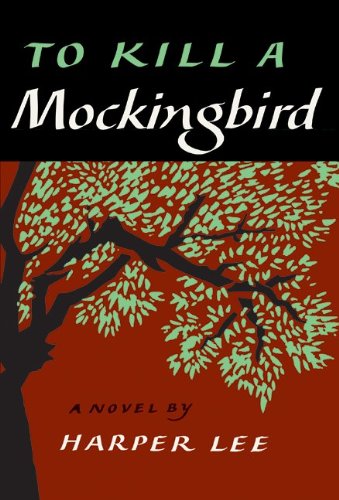All Nonfiction
- Bullying
- Books
- Academic
- Author Interviews
- Celebrity interviews
- College Articles
- College Essays
- Educator of the Year
- Heroes
- Interviews
- Memoir
- Personal Experience
- Sports
- Travel & Culture
All Opinions
- Bullying
- Current Events / Politics
- Discrimination
- Drugs / Alcohol / Smoking
- Entertainment / Celebrities
- Environment
- Love / Relationships
- Movies / Music / TV
- Pop Culture / Trends
- School / College
- Social Issues / Civics
- Spirituality / Religion
- Sports / Hobbies
All Hot Topics
- Bullying
- Community Service
- Environment
- Health
- Letters to the Editor
- Pride & Prejudice
- What Matters
- Back
Summer Guide
- Program Links
- Program Reviews
- Back
College Guide
- College Links
- College Reviews
- College Essays
- College Articles
- Back
To Kill A Mockingbird by Harper Lee
“Shoot all the blue jays you want, if you can hit 'em, but remember it's a sin to kill a mockingbird.” This is the best-known line from Harper Lee’s To Kill a Mockingbird, a classic of modern American literature and one of the most influential works of historical fiction.
The novel, based on the author’s own childhood in the post-war South, chronicles the endeavors of a young girl named Scout Finch, who lives in the small town of Maycomb, Alabama. Scout and her brother Jem develop a fascination for their mysterious, reclusive neighbor and town oddity, Boo Radley, while their father Atticus battles a seemingly futile case to defend an African-American man. Over the course of three years, the characters of the two children are altered as they are deprived of their innocence and taught the often harsh reality of human nature.
What makes this timeless classic a timeless classic, and why does it still appeal to readers in the modern world?
Through the experiences of Scout and Jem, Lee addresses the aspects of Southern life, including racial injustices and social hierarchies, and teaches the true meanings of empathy, compassion, and dignity, among others. The book’s explanations of racial prejudices further magnify its depth and perception of mankind and the struggles faced by countless individuals after the Civil War.
Many often take interest in the book because they see a strong hero in Atticus Finch, who stands his ground, while still earning respect from his community. Portrayed as a wise, inspiring, and perfect parent, he serves as an example to all. The book is also written from the perspective of a young, naive child, which enhances the impressiveness and vividness of the ruthless essence of the South.
However, despite the book’s reputation as an empowering and eloquent story of growing up, there are always those who dislike it. A chief reason is Harper Lee's style of writing. The book, written over half a century ago, might be a monotonous chore to read for some, who are burdened by excessive descriptions of details. Nevertheless, most enjoy the intricate pictures painted by these same specifics.
Though opinions may differ, the words of To Kill a Mockingbird undoubtedly illustrate the concerns and flaws of humanity and society, while highlighting various valuable lessons for life and conveying crucial ethic guidance.
Similar Articles
JOIN THE DISCUSSION
This article has 1 comment.

